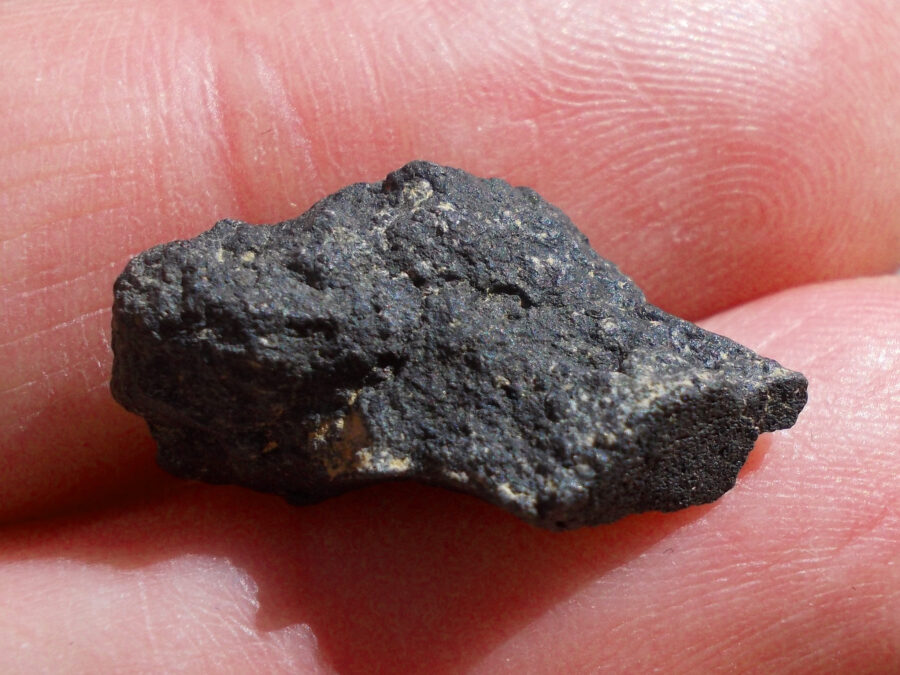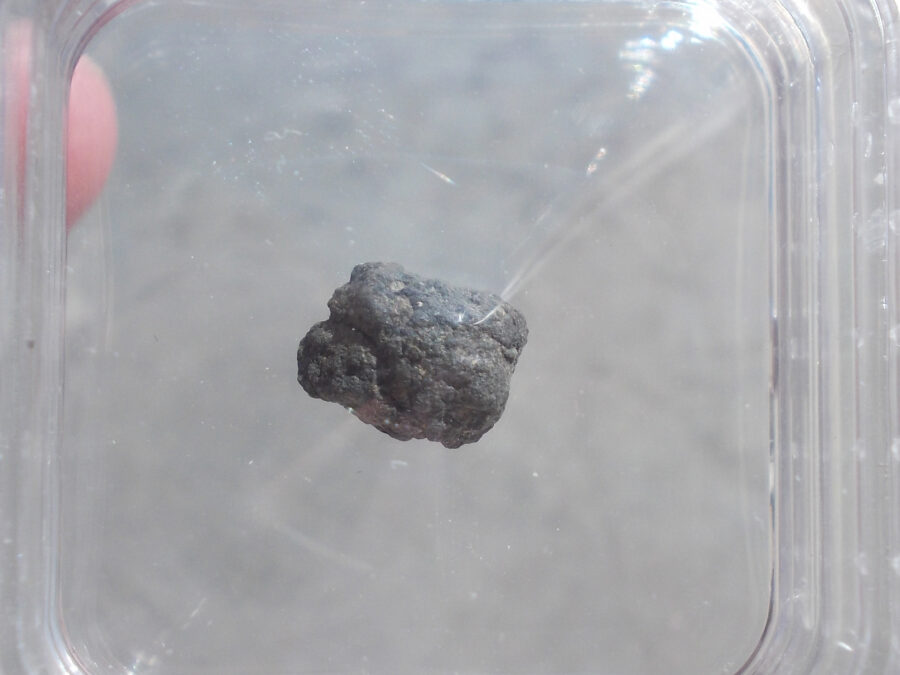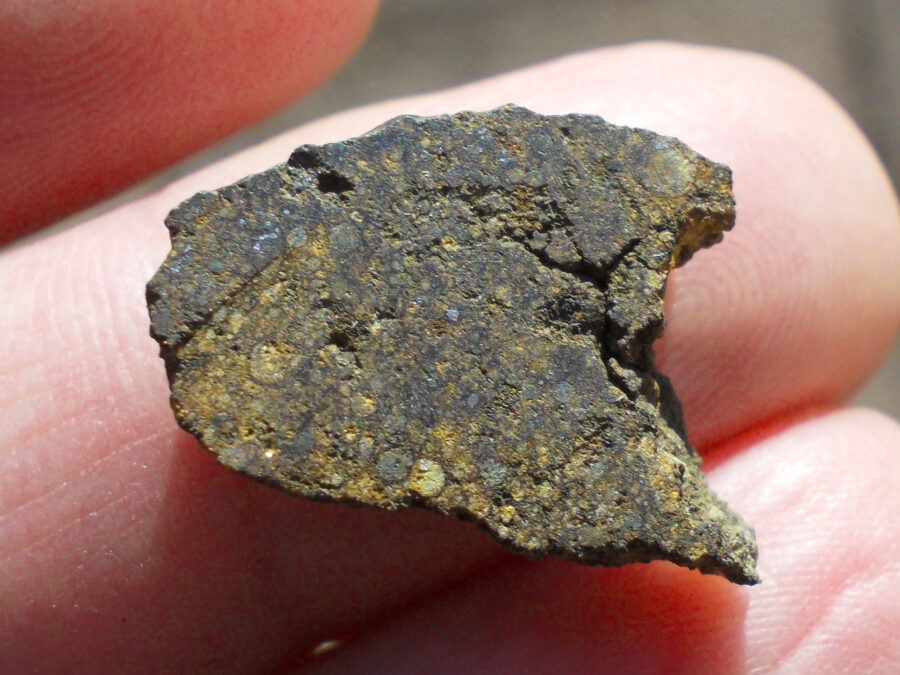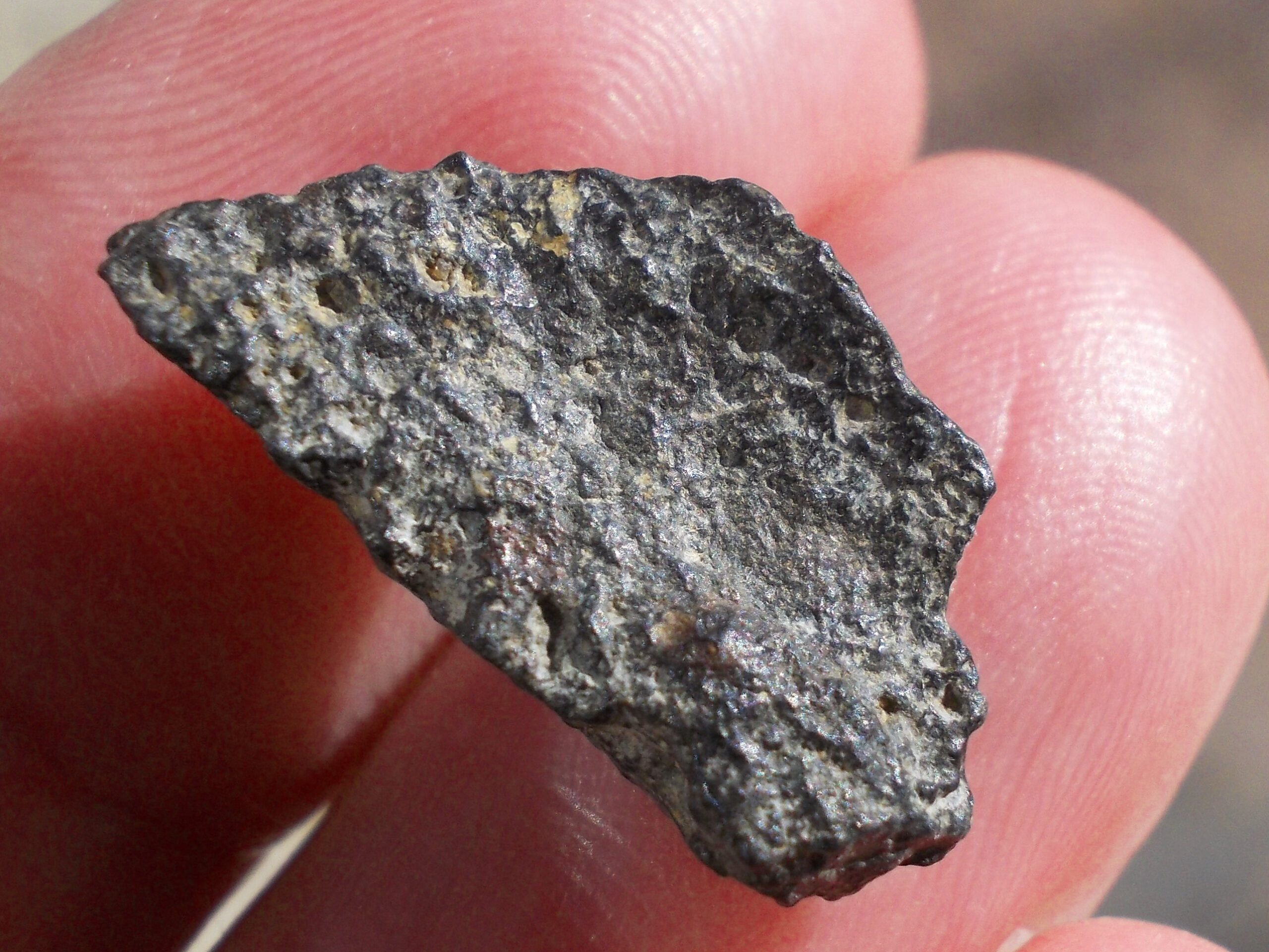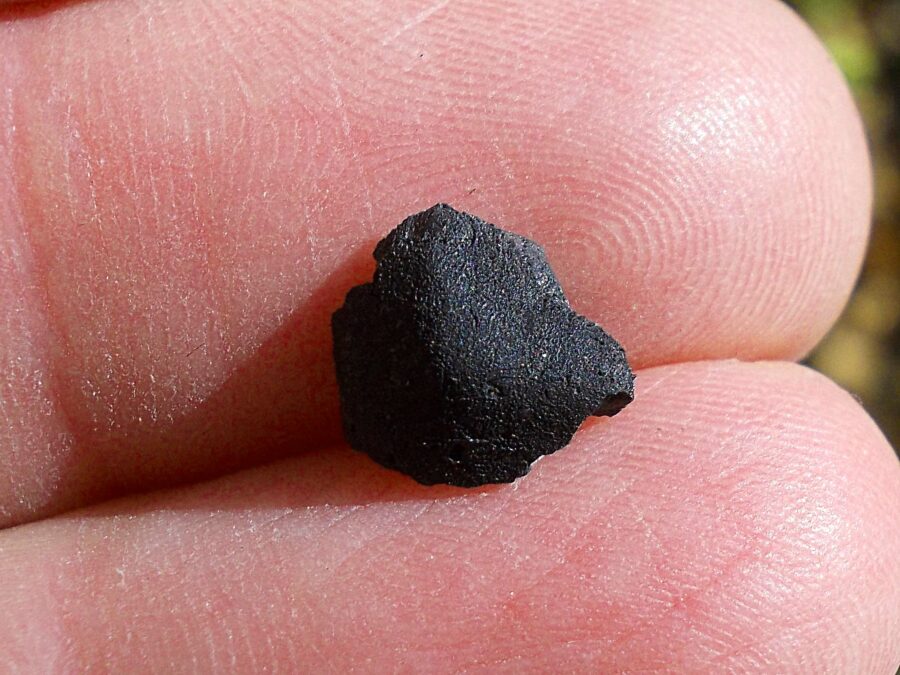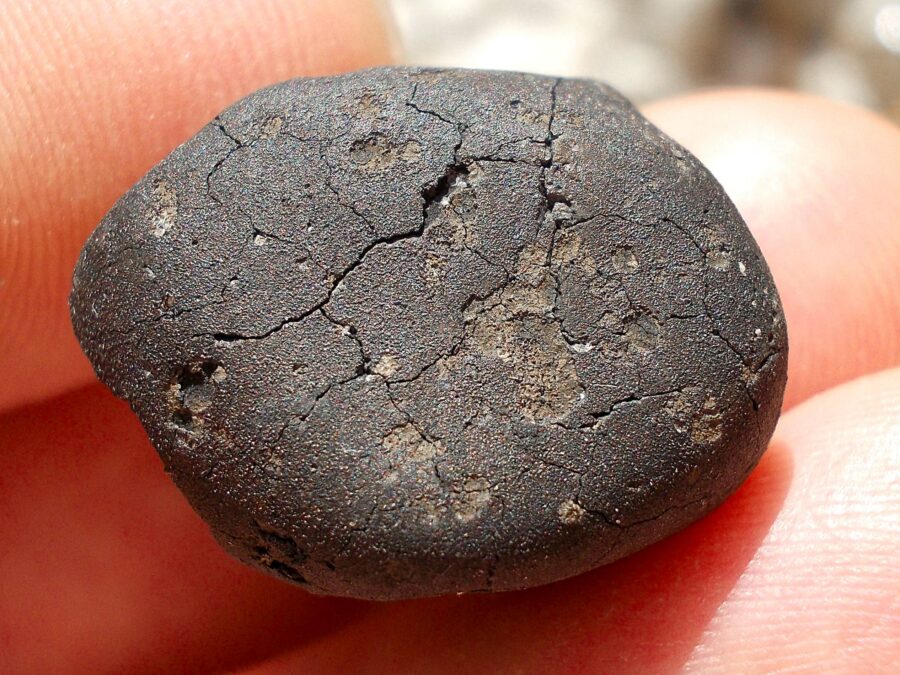Description
Beautiful endcut of 4.67 g
Comes with certificate.
161,46 $
Jrifia Boujdour is a carbonaceous meteorite.
But what makes it special is its analysis.
Several laboratories worked on this meteorite, and obtained different classifications, once CM2 (NWA 10574) and the other time CO3 (NWA 10580).
Writeup from MB 105:
Northwest Africa 10574 (NWA 10574)
(Northwest Africa)
Purchased: 2016
Classification: Carbonaceous chondrite (CM2)
History: Many small meteorite fragments were bought in 2016 from the Moroccan meteorite dealer Hamza Lharbi in Guelmim, Morocco.
Petrography: The meteorite shows an almost black interior and is composed of about 0.1-0.3 mm chondrules, chondrule pseudomorphs, mineral fragments and rare CAIs often surrounded by fine-grained accretionary rims set into an abundant fine-grained matrix. Main matrix phases are phyllosilicates, carbonates, and pyrrhotite.
Writeup from MB 105:
Northwest Africa 10580 (NWA 10580)
(Northwest Africa)
Purchased: October 2015
Classification: Carbonaceous chondrite (CO3)
History: Purchased from a Moroccan dealer, October 2015.
Physical characteristics: Many identical appearing stones. Shiny, black to dark brown, smooth weathered exterior with very small chondrule pits; saw cuts reveals numerous small chondrules and a few small CAIs set in a dark-brown matrix.
Petrography: (C. Agee, UNM) Microprobe examination of a polished mount shows numerous chondrules, many fragmental or irregular, most in the size range 50-200 μm, a few up to 600 μm. Scattered metal/sulfide blebs, fine-grained matrix makes up about 50% of this meteorite. Most chondrules appear to be Type I with forsteritic olivine, enstatitic pyroxene or aluminous diopside. Very few Type II chondrules were observed.
A mystery still not cleared up.
Out of stock
Beautiful endcut of 4.67 g
Comes with certificate.
| Weight | 4,67 g |
|---|---|
| Dimensions | 2 × 1,5 × 1 cm |
| Form | Endcut |
